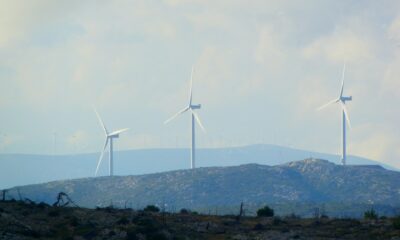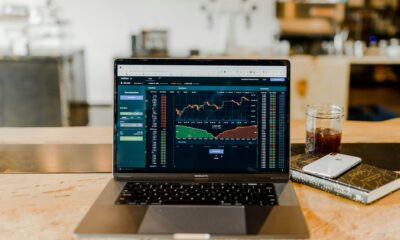Featured
Public Companies in Spain Focus on ESG Agenda
State-owned companies are focusing their sustainable strategy on employee health and decarbonization. Groups such as Tragsa and Giahsa are examples. Tragsa, specialized in works and services in the rural environment and nature conservation, and carries out R&D&I projects for the implementation and use of new technologies focused on preserving and improving the safety and health of its professionals.

SOEs also play a strategic role in the transition to a more sustainable economy. The ESG (environmental, social, and governance) agenda of state-owned companies, as contributors to achieving the Sustainable Development Goals (SDGs), has placed a particular focus on promoting the health and well-being of their employees, alongside the goal of achieving climate neutrality.
The report Climate and Wellbeing: In the focus of the ESG agenda of Spanish public companies, prepared within the framework of the Sustainability and CSR in Public Companies Action Group, led by Forética and made up of 31 entities, identifies some of the initiatives they are carrying out to contribute to these goals. The Action Group is headed by ICO and Informa D&B, and includes groups such as Adif, Aena, Cesce, Emasesa, Enaire, Enresa, Enusa, Tragsa, Icex, Ineco, Metro de Madrid, Navantia, Paradores, Renfe, RTVE, and Senasa, among others.
In recent years, companies have been confronted with the risk associated with the lack of health and well-being management among their stakeholders. This risk has led the business world to commit to the creation of a culture of well-being focused not only on the physical sphere but also on financial, social, and emotional well-being, bearing in mind that people spend 30% of their lives in the workplace.
Read more on the subject and find other business headlines with our companion app Born2Invest.
Five dimensions
The World Business Council for Sustainable Development (Wbcsd) identifies five dimensions of health and well-being that companies need to address: occupational (health and safety), physical, mental, social, and financial. Eighty-one percent of the public companies in the Action Group have a specific strategy or program to care for the health and well-being of their teams; 89% implement measures for work flexibility and conciliation; 85% promote actions for a healthy lifestyle and habits; 44% guarantee digital disconnection; and 26% offer them psychological and emotional support.
Groups such as Tragsa and Giahsa are examples. Tragsa, specialized in works and services in the rural environment and nature conservation, and carries out R&D&I projects for the implementation and use of new technologies focused on preserving and improving the safety and health of its professionals. Such as the Humif Project, on smoke in forest fires, with measurements to analyze and know the exposure to which people working in forest fire extinction may be exposed by chemical pollutants.
The service management company Giahsa will prepare the strategic plan entrusted to it by the Plenary of the Mancomunidad de Servicios de la provincia de Huelva to improve hydraulic infrastructures and municipal investment plans, articulating a mechanism to invest in those infrastructures affected by the provision of the integral water cycle in 36 municipalities.
Along with occupational health, public companies must advance in decarbonization to reach the goal of zero emissions, following the Climate Change and Energy Transition Law. This states that by 2050 Spain must achieve climate neutrality to comply with international commitments, while the electricity system must be based only on renewable sources.
Climate strategy
79% of the companies in the Action Group already have a climate action strategy with decarbonization actions, including energy efficiency measures, electrification, and consumption of renewable energies. Likewise, for 67% of them, collaboration and working with the supply chain for their decarbonization is key towards achieving zero emissions; and for 71% the major drivers for climate neutrality are to contribute to the 2030 Agenda for Sustainable Development and to mitigate exposure to environmental risks.
Public companies are also active in initiatives. ICO, for example, is a benchmark issuer with the launch of thirteen sustainable bond issues worth €6.55 billion. Four of these issues are green bonds, which have boosted 30 renewable energy and clean transport projects of Spanish groups, and nine are social. ICO launched in 2020 the first public issue of a Covid Social Bond, and has directed part of the financing of its latest issues, among others, to building hospitals or social housing projects.
Navantia has developed the Navantia Ecosystem initiative, based on offsetting emissions. To this end, it has a reforestation project with the City Council of San Fernando (Cadiz) for the absorption of carbon dioxide. It is also preparing for blue carbon sequestration plans, to offset emissions with projects associated with marine and coastal ecosystems, supporting their conservation.
__
(Featured image by ysawatdeekha via Pixabay)
DISCLAIMER: This article was written by a third party contributor and does not reflect the opinion of Born2Invest, its management, staff or its associates. Please review our disclaimer for more information.
This article may include forward-looking statements. These forward-looking statements generally are identified by the words “believe,” “project,” “estimate,” “become,” “plan,” “will,” and similar expressions. These forward-looking statements involve known and unknown risks as well as uncertainties, including those discussed in the following cautionary statements and elsewhere in this article and on this site. Although the Company may believe that its expectations are based on reasonable assumptions, the actual results that the Company may achieve may differ materially from any forward-looking statements, which reflect the opinions of the management of the Company only as of the date hereof. Additionally, please make sure to read these important disclosures.
First published in Expansion, a third-party contributor translated and adapted the article from the original. In case of discrepancy, the original will prevail.
Although we made reasonable efforts to provide accurate translations, some parts may be incorrect. Born2Invest assumes no responsibility for errors, omissions or ambiguities in the translations provided on this website. Any person or entity relying on translated content does so at their own risk. Born2Invest is not responsible for losses caused by such reliance on the accuracy or reliability of translated information. If you wish to report an error or inaccuracy in the translation, we encourage you to contact us.

-

 Crowdfunding1 week ago
Crowdfunding1 week agoThe Youth Program at Enzian Shooting Club Is Expanding Thanks to Crowdfunding
-

 Crypto4 days ago
Crypto4 days agoTariff Turmoil Sends Bitcoin and Ethereum Lower as Crypto Markets Face Mounting Pressure
-

 Markets2 weeks ago
Markets2 weeks agoMarkets, Jobs, and Precious Metals Show Volatility Amid Uncertainty
-

 Crypto23 hours ago
Crypto23 hours agoEthereum Outlook: Key $2,190 Resistance, Whale Accumulation, and Buterin’s Push for True DeFi
























